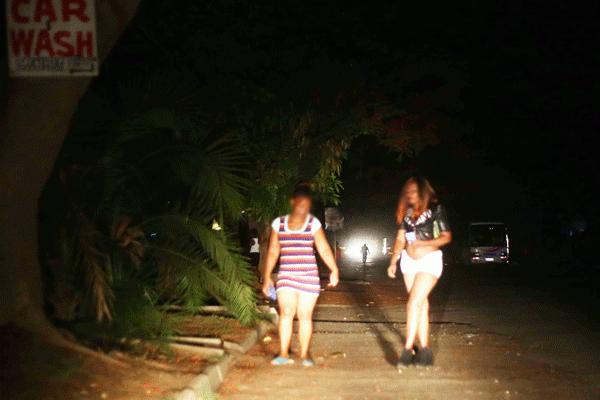News / National
Sex workers torment Bulawayo CBD residents
11 Sep 2024 at 08:22hrs |
0 Views

Residents in Bulawayo's central business district (CBD) are expressing growing concern over the disruptive behavior of commercial sex workers in the area, particularly along Fort Street, Second Avenue, and Masotsha Ndlovu Avenue. The community has reported a range of issues, including illegal activities and increased harassment, with little success in addressing these problems through police intervention.
Albert Nyoni, a local resident, described the situation as untenable, stating, "It feels like we're living amidst brothels. Sex workers are invading our private spaces and conducting their business without our consent." Nyoni added that these workers have been making fires within residential yards, damaging plants, and leaving behind litter, including used condoms. This has led to children becoming desensitized to inappropriate behavior in public spaces.
Nyoni recounted multiple attempts to report the issue to the police, only to face insults from the sex workers and threats of violence. "The situation has become unsafe, and our rights to privacy and freedom are being violated," he said. The lack of regular police patrols in the area has contributed to the persistence of these activities.
Another resident noted that the sex workers have even hung their clothes on private property without permission, exacerbating privacy concerns. "While everyone has the right to their business, this is infringing on our rights to privacy and peace," he said, adding that the area has become a hotspot for prostitution, with houses being converted into brothels even during the day.
Ward 1 Councillor Josiah Mutangi confirmed the reports of harassment and acknowledged the rise in prostitution in the area. He attributed part of the issue to the absence of street lighting, which may be contributing to the proliferation of these activities. "We are pushing for the installation of street lights to deter such activities and are working with the police to address the situation," Mutangi said.
Mutangi also noted that he had witnessed the problematic behavior of some sex workers firsthand. He attributed the increase in prostitution to broader social issues, including rising divorce rates. To address this, he mentioned that there are programs aimed at helping sex workers transition to other forms of employment. "We are providing support and funding for those who wish to start new projects and earn a living through alternative means," he said.
Mutangi emphasized that many sex workers are individuals with families who have lost their husbands and struggle with financial pressures, including paying rent and school fees. The council remains committed to supporting these individuals while addressing the challenges faced by residents.
Albert Nyoni, a local resident, described the situation as untenable, stating, "It feels like we're living amidst brothels. Sex workers are invading our private spaces and conducting their business without our consent." Nyoni added that these workers have been making fires within residential yards, damaging plants, and leaving behind litter, including used condoms. This has led to children becoming desensitized to inappropriate behavior in public spaces.
Nyoni recounted multiple attempts to report the issue to the police, only to face insults from the sex workers and threats of violence. "The situation has become unsafe, and our rights to privacy and freedom are being violated," he said. The lack of regular police patrols in the area has contributed to the persistence of these activities.
Ward 1 Councillor Josiah Mutangi confirmed the reports of harassment and acknowledged the rise in prostitution in the area. He attributed part of the issue to the absence of street lighting, which may be contributing to the proliferation of these activities. "We are pushing for the installation of street lights to deter such activities and are working with the police to address the situation," Mutangi said.
Mutangi also noted that he had witnessed the problematic behavior of some sex workers firsthand. He attributed the increase in prostitution to broader social issues, including rising divorce rates. To address this, he mentioned that there are programs aimed at helping sex workers transition to other forms of employment. "We are providing support and funding for those who wish to start new projects and earn a living through alternative means," he said.
Mutangi emphasized that many sex workers are individuals with families who have lost their husbands and struggle with financial pressures, including paying rent and school fees. The council remains committed to supporting these individuals while addressing the challenges faced by residents.
Source - southern eye
Join the discussion
Loading comments…



























